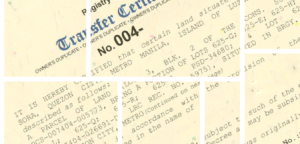Real estate development is a crucial component of economic growth in the Philippines. However, it is also an industry that is vulnerable to various unscrupulous practices that can cause harm to buyers, damage the environment, and disrupt the country’s economic stability.
But what exactly constitutes unsound real estate business practices in the Philippines?
There needs to be a clear-cut definition of what is unsound real estate business practice. The recent case decided by the Supreme Court, Perfecto Velasquez, Jr. v. Lisondra Land Inc. (G.R. No. 231290, August 27, 2020), sheds light on what constitutes unsound real estate business practices and provides guidance on how to avoid them.
In this case, Petitioner (Velasquez) entered into a joint venture agreement with a Real Estate Developer to develop a 7,200-square-meter parcel of land into a memorial park. However, the developer needed to secure the required permit from the Housing and Land Use Regulatory Board (HLURB) within a reasonable time, delaying the project’s construction. Moreover, the company collected kickbacks from agents and gave away lots in exchange for services, contrary to the commitment to finance the project using its funds.
The petitioner filed a complaint against the developer for breach of contract before the Regional Trial Court (RTC), but the latter sought to dismiss the case for lack of jurisdiction. It claimed the supposed violations involved real estate trade and business practices within the HLURB’s exclusive authority. As a result, the RTC ruled that it was competent to decide the case. Still, the Court of Appeals (CA) granted the developer’s petition and ordered the case’s dismissal, stating that the alleged acts constitute unsound real estate business practices under HLURB’s jurisdiction.
Mr. Velasquez then filed a complaint before the HLURB, claiming the developer committed unsound real estate business practices. The HLURB found that the developer sold memorial lots and considered open spaces in the approved project plan. It also found that the company developed the adjoining land without the owner’s consent and misrepresented the project’s second phase. These violations were deemed prejudicial to buyers and constituted unsound real estate business practices.
This case highlights the importance of complying with regulatory requirements and ensuring that real estate development follows approved project plans. Unsound real estate business practices can harm buyers and investors, leading to legal action and financial penalties.




